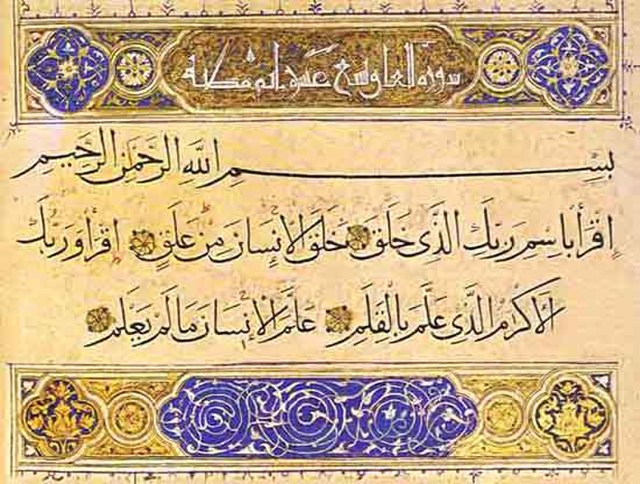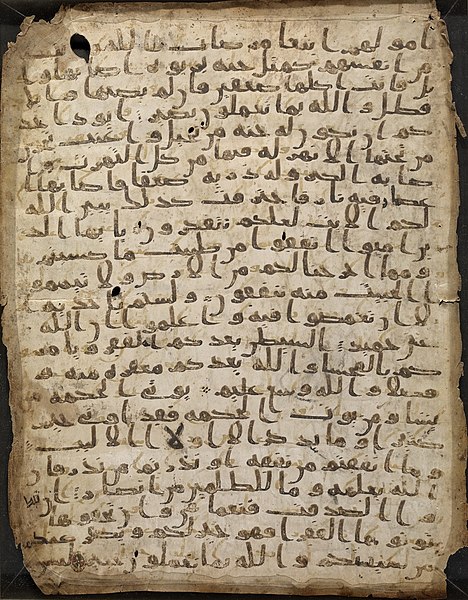In the context of the recitation of the Quran, tajwīd is a set of rules for the correct pronunciation of the letters with all their qualities and applying the various traditional methods of recitation (Qira'at). In Arabic, the term tajwīd is derived from the verb جود, meaning enhancement or to make something excellent. Technically, it means giving every letter its right in reciting the Qur'an.
Muṣḥaf al-tajwīd, an edition of the Qur'an printed with colored letters to facilitate tajweed.
The Quran, also romanized Qur'an or Koran, is the central religious text of Islam, believed by Muslims to be a revelation from God. It is organized in 114 chapters which consist of individual verses. Besides its religious significance, it is widely regarded as the finest work in Arabic literature, and has significantly influenced the Arabic language.
Two folios of the Birmingham Quran manuscript, an early manuscript written in Hijazi script likely dated within Muhammad's lifetime between c. 568–645
Traditionally believed to be Muhammad's first revelation, Surah Al-Alaq, later placed 96th in the Qur'anic regulations, in current writing style
Quran − in Mashhad, Iran − said to be written by Ali
A page from the Stanford '07 binary manuscript contains verses 265-271 of Surah Al-Baqara; the double layer reveals additions to the original text and differences with today's Quran





